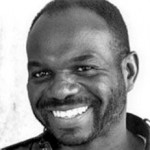An antigay pastor with no HIV-related experience is to be sworn in tomorrow in Washington to help advise President George W. Bush on how best to fight the epidemic. The president hasn’t been one to shy away from making openly political appointments to the Presidential Advisory Council on HIV/AIDS (PACHA)—or from otherwise beefing up “abstinence-only” influence on government policy and funding. But some of his critics say he has gone too far in choosing the Reverend Herbert Lusk.
“The appointment of a minister who is essentially homophobic is very disturbing,” says Ronald Johnson, a PACHA member under President Clinton who is now associate executive director of New York’s Gay Men’s Health Crisis (GMHC). Adds Julie Davids, head of the Community HIV/AIDS Mobilization Project (CHAMP), “[Lusk’s] positions will lead to more infections, more stigma and more marginalization.”
The reverend, who presides over the Greater Exodus Baptist Church in Philadelphia, is on the board of the antigay group Alliance for Marriage and has worked alongside Focus on the Family, one of the nation’s most politically powerful right-wing Christian groups. What advocates like Johnson and Davids are asking is this: How will Lusk square his abstinence-till-marriage and anti-same-sex-marriage crusades with PACHA’s mission to develop programs for a disease in which the majority of infections are still among gay men?
Carrie Gordon Earll, senior policy analyst for bioethics at Focus on the Family, told POZ of Lusk, “It’s a free country, and he can oppose same-sex marriage if he wants to. It’s a stretch to assume he cannot help people in this community just because of that.” Lusk himself did not respond to an interview request.
Four other new PACHA panelists will join Lusk at tomorrow’s swearing-in, including Alan Homer, former president and CEO of Pharmaceutical Research and Manufacturers of America (PhRMA)—the nation’s largest drug lobby, with a long record of battling efforts to distribute less expensive, generic HIV drugs.
What makes PACHA members different from most other presidential appointees is that they are selected and continue to serve without any congressional input. That wasn’t always a problem. When the panel was founded under President Reagan in 1987 (at first, as the President’s Commission on the HIV Epidemic), it was considered a more balanced and science-driven body. Effectiveness often won out over political expediency—to the point where PACHA publicly lambasted Reagan’s HIV policy. Bush Sr. continued that tradition with the appointment of an outspoken Magic Johnson, and Clinton followed suit.
“The [Council] was independent,” recalls Ronald Johnson of his time on PACHA. “We directly challenged President Clinton; and at one point, even gave his prevention policies a public F, because he wouldn’t legalize needle exchanges.”
All that changed with George W.—starting with the day in 2001 that he threatened to disband the body completely. “It’s not even worth discussing what role this committee could serve,” says Davids of PACHA’s panelists now. “Because all they are is a rubber stamp for bad administration policies.”
Bush Abstains From Appointing HIV Experts






Comments
Comments